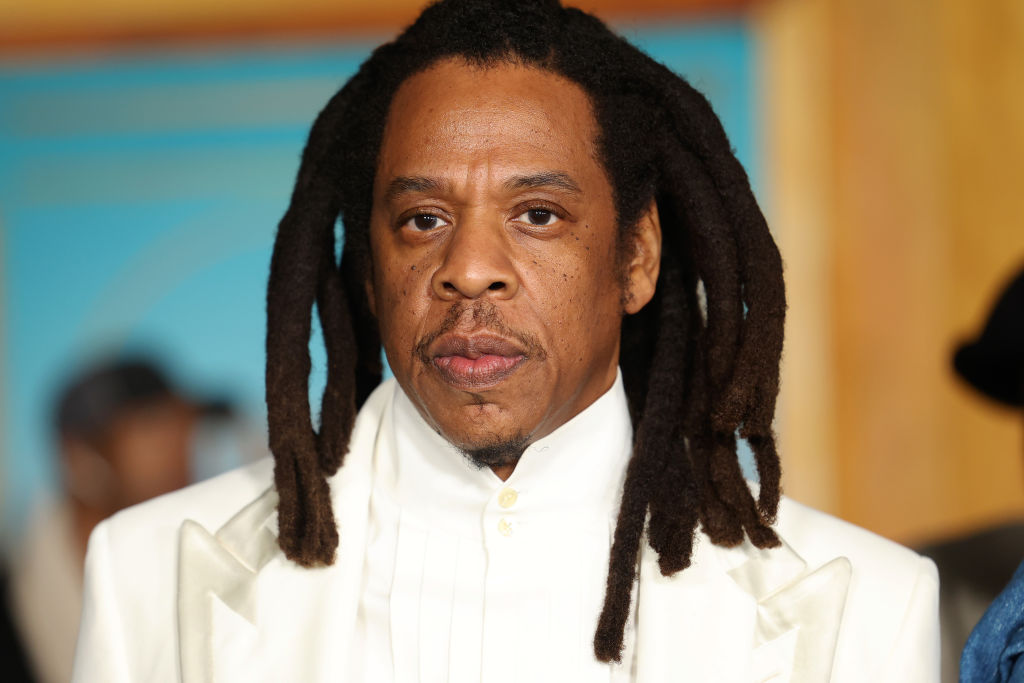Jay-Z: The Evolution of a Cultural Icon
Born Shawn Corey Carter on December 4, 1969, Jay-Z is not just one of the most successful rappers of all time; he is a cultural icon whose influence extends far beyond music. From his humble beginnings in the Marcy Projects of Brooklyn to becoming a billionaire mogul, Jay-Z’s journey is a testament to resilience, creativity, and business acumen. His legacy is rooted in his ability to evolve with the times while consistently setting new standards in the hip-hop industry. With multiple classic albums, groundbreaking business ventures, and philanthropic endeavors, Jay-Z has become a key figure in music, technology, fashion, and social justice.
Early Life and Education
Jay-Z was raised by his mother, Gloria Carter, after his father, Adnis Reeves, left the family when he was a young child. Growing up in the Marcy Projects, he experienced the struggles of inner-city life firsthand. Surrounded by crime and poverty, his environment deeply influenced his music and became a central theme in his lyrics. Jay-Z attended high school with future legends like The Notorious B.I.G. and Busta Rhymes but eventually dropped out of George Westinghouse Career and Technical Education High School to pursue a life on the streets.
His first rap name was “Jazzy,” inspired by hip-hop pioneers like Grandmaster Flash and The Sugarhill Gang. He later changed it to “Jay-Z,” partly inspired by the J and Z subway lines near his projects. Despite the challenges he faced, including selling drugs, Jay-Z remained focused on finding a way out, using his experiences to fuel his creativity.
Rise in the Music Industry
Jay-Z’s rise in the music industry began with battle rapping in the streets of Brooklyn. His street credibility and the support of his neighborhood showcased his potential in hip-hop. In the early 1990s, he started recording demos independently, which eventually caught the attention of Dame Dash. After several failed attempts at securing a record deal, Jay-Z, Dash, and Kareem “Biggs” Burk launched Roc-A-Fella Records in 1994. The label independently released Jay-Z’s debut album, “Reasonable Doubt,” in 1996, marking the beginning of his ascent to stardom.
Key Albums (1995 – 2005)
In just a decade, Jay-Z became a global rap sensation with multiple classic albums:
-
“Reasonable Doubt” (1996): Often hailed as one of the greatest rap albums of all time, it received critical acclaim for its sharp lyricism and commentary on street life. Despite modest sales upon release, it became a classic due to Jay-Z’s rising notoriety.
-
“The Blueprint” (2001): Released during a heated beef with Nas, this album featured the diss track “Takeover” and was produced by Kanye West and Just Blaze. Its soulful production influenced a shift toward sample-based production in hip-hop.
-
“The Black Album” (2003): Marketed as a retirement album, it featured hits like “99 Problems” and “Encore.” This album set the trend of artists announcing retirements to boost album sales.
- “4:44” (2017): One of Jay-Z’s most introspective albums, it delves into personal topics like infidelity and financial lessons, showcasing his vulnerability and growth.
Significant Singles and Hits
Jay-Z’s career is marked by several iconic singles that have left an indelible mark on both hip-hop and mainstream music:
-
“Hard Knock Life (Ghetto Anthem)” (1998): This defining hit transformed Jay-Z into a household name by sampling the musical “Annie,” juxtaposing inner-city struggles with the optimism of success.
-
“Big Pimpin” (1999): A collaboration with UGK, this track emphasized a life of opulence and garnered significant radio play.
- “Empire State of Mind” (2009): Featuring Alicia Keys, this anthem for New York City resonated with listeners from all walks of life.
Compilations and Collaborations
Jay-Z is known for his prolific collaborations, impacting various genres and musical styles:
-
“03 Bonnie and Clyde” (2002): This collaboration with Beyoncé marked the beginning of their public relationship.
-
“Watch the Throne” (2011): A joint album with Kanye West, it featured the hit “Ni**as in Paris” and set a trend for solo hip-hop artists collaborating on joint projects.
-
“Umbrella” (2007): A global hit with Rihanna, showcasing Jay-Z’s ability to blend rap with pop sensibilities.
- “Drug Dealers Anonymous” (2016): Featuring Pusha T, this track is praised for its raw lyricism and exploration of the struggles that come with material success.
Live Albums and Mixtapes
Live albums and mixtapes have played an essential role in Jay-Z’s career, showcasing his ability to push the boundaries of hip-hop performance:
-
“Jay-Z: Unplugged” (2001): This album redefined how rappers can perform with live bands, featuring an intimate acoustic set with The Roots.
-
“B-Sides” (2015, 2019): A special concert series where Jay-Z performs rare tracks, providing hardcore fans with a unique experience.
- “The Demos: Before Reasonable Doubt”: A collection of Jay’s demos before breaking into the mainstream, showcasing his early lyrical prowess.
Notable Feuds and Conflicts
Jay-Z’s career has also been marked by notable feuds that have shaped the hip-hop landscape:
-
Jay-Z vs. Nas: This long-standing conflict began when Nas ghosted Jay on a studio session, leading to a series of diss tracks. Their rivalry culminated in the iconic tracks “Takeover” and “Ether,” which are still discussed today.
-
Jay-Z vs. Prodigy: Their rivalry began as friendly competition but escalated into lyrical assaults, particularly after Jay-Z’s “Takeover.”
-
Jay-Z vs. DMX: Both revered for their skills, they faced off in a legendary rap battle, showcasing the competitive spirit of hip-hop.
- Jay-Z vs. Lil Wayne: As Wayne claimed the title of the best rapper alive, Jay-Z subtly responded with sneak jabs in his music, maintaining industry relations while asserting his dominance.
Musical Style and Technique
Jay-Z’s musical style has evolved significantly over the years. He started with a fast, complex flow that amazed audiences but later slowed it down to appeal to a broader audience. His lyrical themes range from personal experiences to societal reflections. Early works like “Reasonable Doubt” explore street survival, while later albums delve into personal growth and social responsibility. This ability to blend commercial appeal with thought-provoking content continues to influence countless rappers.
Business Ventures: Building the Roc Nation Empire
Jay-Z’s influence extends beyond music into the realm of business. His ventures have redefined what it means to be a modern entrepreneur.
Technology Ventures
Jay-Z’s acquisition of TIDAL in 2015 marked a significant turning point in the music streaming industry. Promoted as an artist-owned service, TIDAL aimed to offer higher royalty payouts to musicians. Jay-Z eventually sold TIDAL to Square Inc. for $302 million, solidifying his status as a savvy businessman.
Ownership in Sports Teams
In 2003, Jay-Z acquired a minority stake in the Brooklyn Nets, playing a crucial role in the franchise’s branding. However, he was forced to sell his stake in 2013 due to conflicts with his growing sports agency, Roc Nation Sports, which represents top athletes.
Media and Entertainment Projects
Jay-Z has also made significant contributions to the entertainment industry as a producer and executive. He produced the western film “The Harder They Fall” (2021) and collaborated on “The Book of Clarence” (2023). Additionally, he became the co-producer of the Super Bowl Halftime Show in 2019, selecting artists to perform as part of the Roc Nation deal.
Personal Life
Jay-Z’s personal life is marked by high-profile relationships and family dynamics. His marriage to Beyoncé in 2008 is one of the most celebrated unions in the entertainment industry. Together, they have three children: Blue Ivy, born in 2012, and twins Sir and Rumi, born in 2017. Their relationship faced challenges, particularly after Jay-Z’s infidelity was revealed in Beyoncé’s album “Lemonade,” which he addressed in his own album, “4:44.”
In his memoir “Decoded” (2010), Jay-Z detailed his former lifestyle, including his involvement in selling crack cocaine. He also faced legal issues, such as the 1999 trial involving Lance “Un” Rivera, where he pleaded guilty to a lesser charge after an altercation.
Philanthropy and Social Impact
Jay-Z’s commitment to social justice and philanthropy is evident through various initiatives. The Shawn Carter Foundation, established in 2003, focuses on providing scholarships to underserved youth and has donated over $4 million to various programs. He produced the documentary “Rest in Power: The Trayvon Martin Story” (2018) to highlight systemic racial injustices and continues to advocate for bail reform and ending mass incarceration through Team ROC.
Cultural Influence and Legacy
Jay-Z’s legacy is monumental, with cultural influence resonating across music, business, fashion, and social justice. His impact on hip-hop is so profound that when he makes a statement, everyone listens. Jay-Z’s success has paved the way for other rappers to venture into business, demonstrating how to build brands like Rocawear and D’USSÉ cognac. His legacy will continue to shape future generations of entrepreneurs, solidifying his status as a cultural icon.


